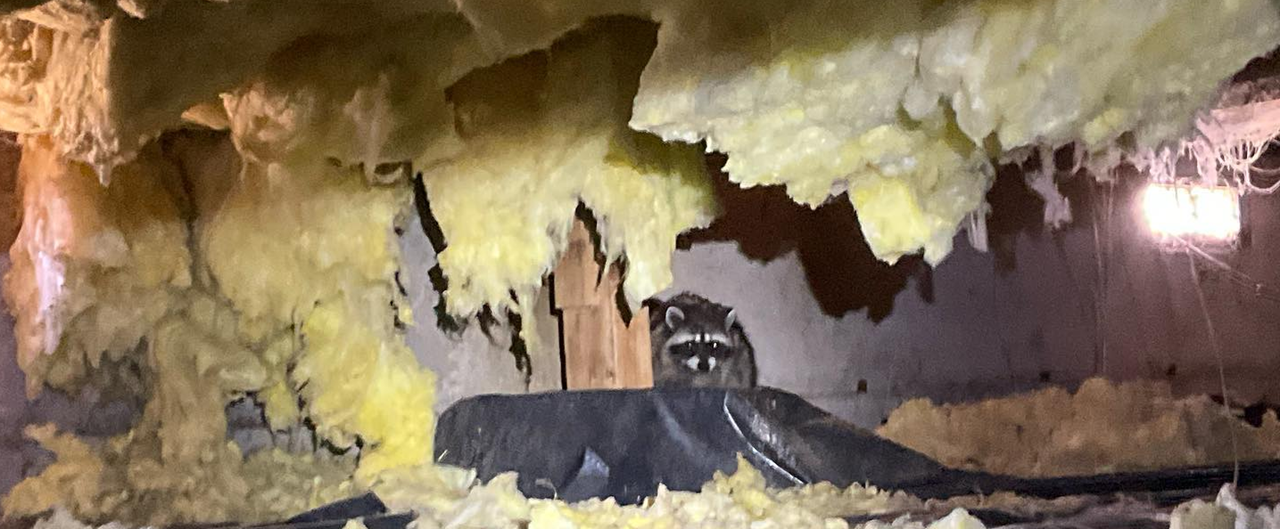
Having food part of a raccoon’s diet is one of the most common reasons a raccoon explores your yard. Raccoons have a typical range of two to four miles but prefer to create dens that provide shelter and are close to food and water. If your property has food, you might be inviting the raccoon to find shelter in your attic.
Raccoons (procyon lotor) are omnivores meaning they eat both plants and animals. Their diverse diet allows them to thrive in a variety of habitats; in fact, they are found in every state in the U.S. Raccoons use their keen sense of smell to find food, and their sensitive sense of touch to identify it.
Need Help with Raccoon Infestation?
Find a Critter Control near you.
Most Common Things Raccoons Eat
Plant Food
- Fruits
- Berries
- Nuts
- Corn
- Grains
Raccoon Food
- Insects like grubs, worms, snails
- Amphibians like frogs and toads
- Small rodents like mice and rats
- Chickens and their eggs
- Water animals like crayfish and clams
Raccoon Diet in the Wild
Raccoons eat nuts, berries, fruits, corn, and grains. Raccoons are also predators. They hunt small mammals like mice, voles, shrews, and rabbits. They have also been known to take bird eggs and young birds from nests. They can catch fish, shellfish, clams, crayfish, reptiles, and amphibians. Invertebrates like insects, grubs, snails, and earthworms are staples of a raccoon diet. Raccoons will eat almost anything to survive which includes scavenging dead carrion.
Baby raccoons typically wean in 16 weeks. After that, the baby raccoon will eat a standard raccoon diet.
Raccoon Diet in Urban Areas
Raccoons are opportunistic feeders and have adapted to live near people. Their regular meals depend largely on where they live. Food scents will attract raccoons and other nuisance wildlife to your yard.
For raccoons that live in residential areas, that means foraging for food in trash cans, gardens, bird feeders, and unattended pet food.
Once a raccoon has found a location with a source of food, it will look for a secure place to build a den. Crawl spaces and attics provide all the requirements for an ideal raccoon den. With their sharp claws, raccoons can gain access to different parts of your house.
Prevent Raccoons, Remove Food Sources
Homeowners can unwittingly attract a raccoon to their property by having sources of food. Homeowners can avoid raccoon problems by limiting food sources like:
- Secure garbage cans.
- Bring in pet food.
- Avoid bird feeders.
Raccoons like to live near water. Pools, birdbaths, or ponds can attract a raccoon to your property.
The most obvious sign you have a raccoon in your yard is the presence of feces. If a raccoon is in your attic, you’ll hear the critter moving late at night.
Get them out.
Keep them out.®
Experiencing a wildlife or pest issue? We can help! Complete this form and your local Critter Control® office will contact you to assist.
- How to Get Rid of Raccoons
- Are Raccoons Dangerous?
- Raccoon Trapping Service
- Raccoon Control
- Baby Raccoons
- Dead Raccoon Removal
- Raccoon Diseases
- Do Raccoons Hibernate in Winter?
- Raccoon Damage
- Raccoon Poop
- Raccoons In Yards
- Raccoons in Basements
- Raccoons in Chimneys
- Raccoons in Crawl Spaces
- Raccoons in Houses
- Raccoons in Trash
- Raccoons in Trees
- Raccoons in Walls
- Raccoons on Roofs & in Soffits
- Raccoon Sounds
- Raccoon Tracks
- Raccoons in Attics & Ceilings
- What Does a Raccoon Look Like?